BM: You are one of the foremost critics of imperialism. Can you tell us
how you came to be who you are? Can you tell us about your formative years?
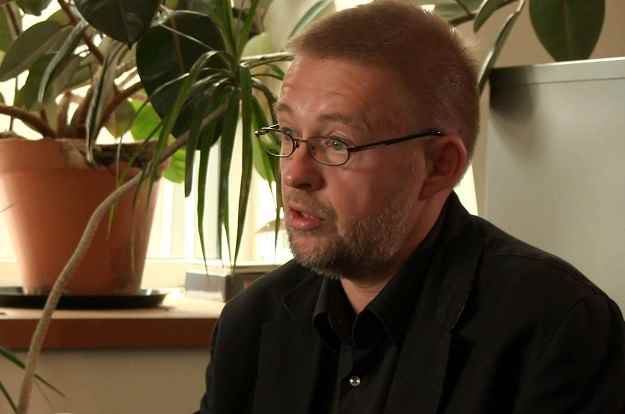
AV: Formative years… There were many of them, and actually, I feel that I am still evolving, until now. People always do, I believe and hope.
I was born in the Union of the Soviet Socialist Republics, in an unbelievably beautiful city of Leningrad, built by insane Peter the Great and by a few no less insane Italian and French architects, on the shores of wide and powerful river Neva, right near the mosquito-infested swamps.
I did not live there long, just three years or so, but the city always stayed inside me.
My mother is half Russian, half Chinese, while my father is Czech, a scientist. At the age of three I was taken to a boring, industrial city of Pilsen (Plzen) in what was then Czechoslovakia; a city also known for its beer and proximity to Bavaria.
My father belongs to that old generation of scientists who believed that they could change and improve the world. He loved classical music, philosophy, literature and good wine – to him, all this was inseparable from the scientific concepts, from dreaming and imagining. He explained Theory of Relativity of Einstein to me, when I was 8, and he taught me how to play chess and think logically.
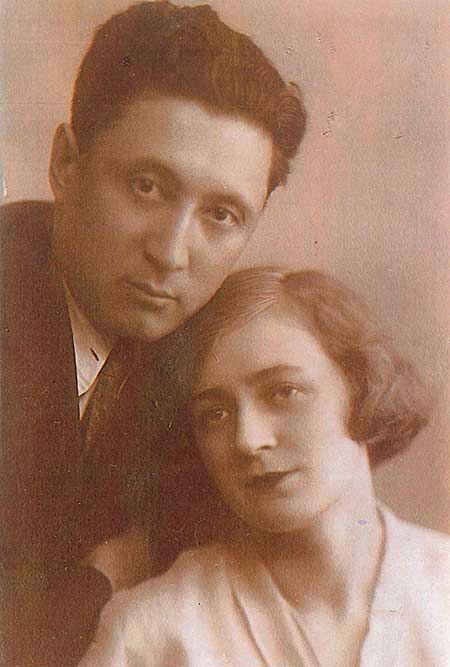
My mother was just a baby when the WW II erupted. Half of my family died during the siege of Leningrad, starved and bombed by German Nazis. She actually almost died from starvation. My grandma fought Germans, was decorated for bravery: she helped to defend and then to rebuild her beloved city. Her husband, my grandfather, was a Communist, a Soviet cabinet minister, and an ethnic Chinese from Kazakhstan. He held ministerial posts for medical care and for food supply. He was denounced as a Japanese spy before the war (during the time when German spy network managed to infiltrate Soviet intelligence communication network and literally fed fake information to the Soviet leadership, significantly weakening it before that war). My grandfather was executed. Then, ‘rehabilitated’ posthumously, when the truth surfaced, finally. He was the love of my grandma’s life; she never remarried again.
Why am I telling you this, Binu? Because my formative years began when I was 3. My family was pulling me apart. My grandmother and my mother educated me as a Soviet boy, on great Russian literature, music, poetry. Every year I was sent for 2-3 months to Leningrad, to my grandma, and she would spoil me silly, dragging me to the opera houses, to concerts, museums. I loved and missed Russia enormously, while living most of the year in emotionally cold and pragmatic Czechoslovakia.
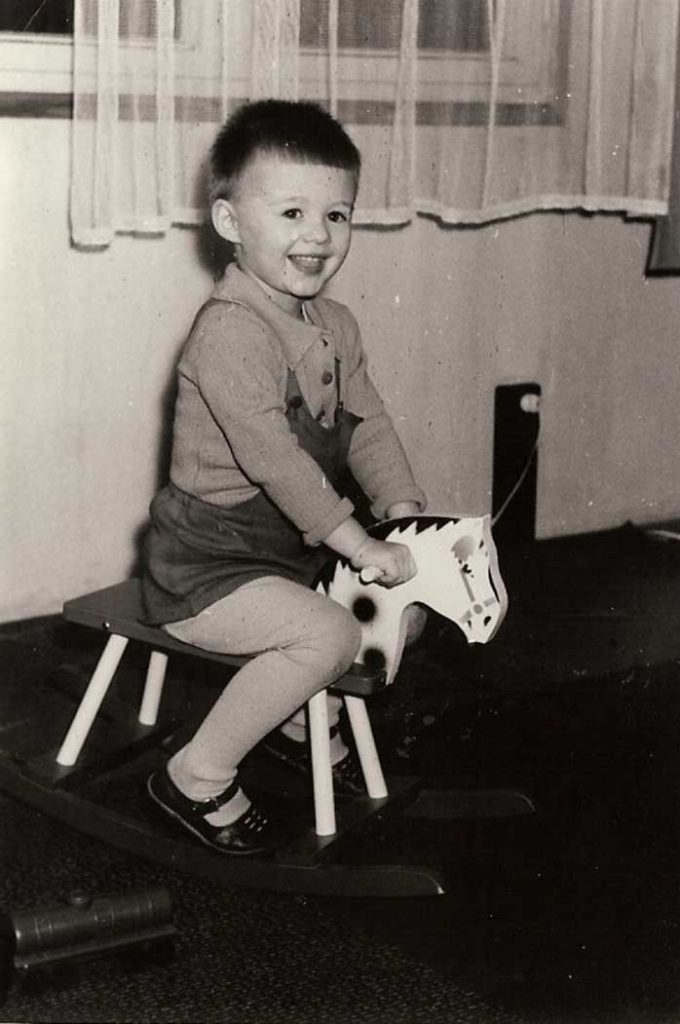
Both women – mother and grandmother: never tried to spare me of all those horrors they survived during the war. I lived through their stories they had to go through during the Siege of the city. My mother would often read me Russian poetry, and she cried. She missed her country and her city, tremendously. She was terrified by the war, even so many years after it ended. I was missing Leningrad, too. I still do.
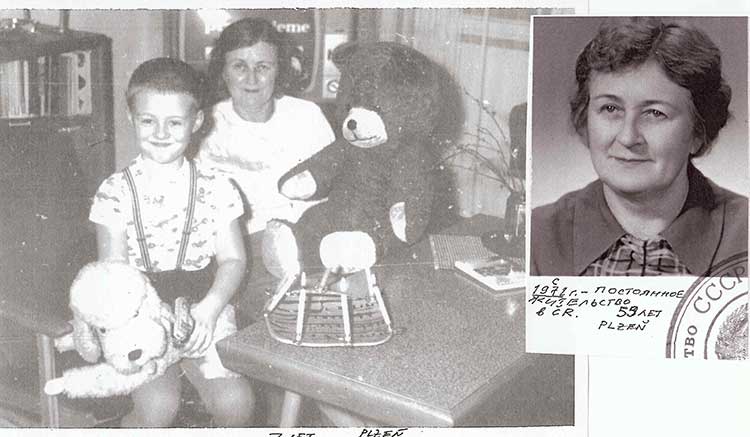
Then the 1968 came, and I was barely 5. Since then, there was no childhood. Since the first grade of elementary school, my life was one huge battle for survival. Between each class, several boys would come and unceremoniously beat me up, just for having Russian mother. First, I suffered in silence. Then I began fighting back. You know how racist Europeans are. I was constantly attacked not only because my mother was “Russian”; it was mainly because she had Asian features. I still remember that talk: “Look at your disgusting Asian ears, you shit”. When I played badminton in a gym, kids were pissing into my shoes during winter, and urine would turn to ice.
My parents divorced. Their marriage collapsed. But also, their political ideas were different. My father left Communist Party of Czechoslovakia. I was getting two totally different interpretations of the political events, since I was 5. From several highly intellectual and bright individuals in my family. I had to decide what was right and wrong.
They destroyed my childhood, but made a tough writer out of me, at a very early age.
I have never forgiven them. In the same time, I am very grateful to them. But above all, to my grandmother, who departed some 20 years ago. I miss her, and I admire her, more and more.
BM: You became a U.S citizen as a teenager. Can you tell us about the
politics behind it?
AV: To be precise, I became a US citizen when I was in my 20’s. But I left Czechoslovakia, with the Soviet passport, when I was very young.
Look, this is a very long story, and I often tell it, in abbreviated forms, but let me try, here, to explain in more detail:
In my late teens, I finally ‘cracked’. It was somehow ‘too much’: my family background, my messed-up childhood, and all that filth and lack of sincerity all around me. Czechs were determined to hate Russians/Soviets, but in the same time, they were shamelessly collaborating with the system. They always were: with the Austro-Hungarian Empire, with the Nazis, and now, with the West. They have been bitching throughout their modern history, but they were serving everyone who was in power. And they were always living extremely well. Under “Communism” they had their comfortable flats, summer houses, cars.
When I grew up, nothing was ‘sacred’. People were poking very vulgar jokes about everything, no woman was ‘out of reach’, drinking orgies were excessive. I guess, as a young writer, I was longing for at least some purity.
I hit the bottle, too. I smoked two packs a day. Being in an elite secondary school, my ‘being different’ was suddenly an asset. I could have almost any girl I desired. But it was all going, somehow, in a wrong direction.
I began listening to the Western propaganda outlets. In Pilsen, they were everywhere: on the radio short waves, on the television shows coming from West Germany, and from samizdat (‘forbidden’ literature, mainly Western propaganda, copied predominantly on the copying machines in the government offices, after hours). I began listening to the Voice of America, Radio Free Europe, BBC in English, Russian and Czech. I was thoroughly brainwashed into accepting official Western narrative regarding the “1968 events”. I was brainwashed into seeing the Soviet involvement in Afghanistan as a ‘crime’.
Divorce of my parents meant that I was, since early age, free to do basically what I desired. I travelled, on shoestrings, by train, all over Eastern Europe, from Balkans to Poland, alone. I think I began when I was 15.
I got myself a girlfriend in Poland, who was a member of student “Solidarity”. We took couple of trips to Gdansk, during protests. I began feeling like a big young dissident, writing erotic/revolutionary poetry, corresponding with the BBC. I did not care much about grades. When I needed money, I did some translations, as I spoke fluently in several languages.
Looking back, I was too young for all this; of course, I was.But again, as I said before, I had no childhood, and no sense of belonging; no patria. My life had no structure. I did not try to be different; I was different, mainly because of the circumstances. In those days, I thought I was a Communist, but a ‘reformist’ one. In fact, I was deeper and deeper influenced by the Western propaganda, and losing my marbles.
To fast-forward, I sent my first book of poetry to the West, and at somepoint,was ordered to leave the country. After all, I had Soviet citizenship, and Czechoslovak authorities saw me as an embarrassment – they had no idea what to do with me.
After dramatic hitchhiking through half of Europe, I spent some time in Italy, and then, very quickly, got political asylum and moved to New York.
I studied film. I worked simultaneously as an interpreter. My first wife was extremely talented concert pianist from Houston.
Right from the beginning, I realized that I had been indoctrinated, and that the reality of the West was totally different from what I heard from its propaganda media outlets.
I was surrounded by fellow students at Film School of Colombia University, when the first attack against Libya took place. I was promptly explained what was going on. While from the East Campus of Columbia University, I could see, at night, fires burning all over Harlem. It was before Harlem was turned into a middle-class neighborhood – before the poor people were forced to move out. It was real Harlem. I used to go there all the time, to an old jazz club called Baby Grand, to drink with the local people, learning about their life.
BM: What prompted you to come out of the devil’s den, the USA and take the
side of the people? Why did you choose the hard path?
AV: During those years I saw real America. I travelled a lot, but above all, I was allowed to see what this ‘marvelous’ capitalism was all about. My first wife was from very rich family. They were in oil business. Had I chosen to, I could have had anything I could ask for. I never did. But I saw clearly, how that world functioned. You know, few years earlier, their neighbors had Lady D as an au pair. Stuff like that…
I was not ready to make films, yet. I wrote my first novel, in Czech, and began ‘making money’ as an interpreter too. And that is when I ‘saw it all’. You know, these were years when Soviet Union was falling apart, and the West basically tried to loot everything. I was present at negotiations, when entire telephone exchanges of major Soviet cities were being ‘privatized’, or when the proud Soviet scientific vessels were sold for a scrap to multi-national food companies, so they could help fishing for deep water lobsters somewhere off the shore of Chile and Peru. I interpreted, and therefore I was present at close-door meetings. I never imagined that such cynicism, and such moral degeneracy could exist. It was capitalism at its naked self. Former Soviet republics, but also the former Czechoslovakia, were being stripped naked. And I saw what no one was supposed to see.
They paid well for the ‘high-level interpreting’. In those days, the going rate was between 500 and 1,000 dollars per day, plus expenses. But even ‘just’ interpreting, I felt filthy, disgusted with myself and with the world.
I felt depressed, suicidal. I saw no meaning in continuing this kind of existence. I wanted to run. I needed to run.
At the end, I did run. I separated from my wife. I dropped everything. And I left, with almost nothing (there is no way to save anything in New York, no matter what is your income), to Peru.
And Peru, in those days, during the so-called ‘Dirty War’, was described by many as ‘the saddest place on Earth’. It was truly destroyed, hopeless, dangerous and extremely tough place.
I burned all bridges behind me. I needed new start.
I always claimed that despite everything, I was a Communist. This was the time to prove it. This was the time to prove that I still had spine and balls and some heart where it was supposed to be – on the left.
BM: How did you cope with after rejecting USA and its politics? How did
you survive? It must be a struggle!
AV: First it was tough; very tough. But I always believed that I can write, and make films, and that I can do it well.
But you see, my decisions were made on ‘moral grounds’. I did not reject Western system and its imperialism, because ‘I could not make it there’. On the contrary: I ‘made it there’, I made it there ‘too much; too big’. I had all that most of immigrants are only dreaming about, and much, much more. But precisely, what others have been desiring, made me sick, and disgusted with the life itself.
It was not just rejecting USA; I was rejecting entire West, mainly Europe. I see and always saw Europe as the root of all problems (and horrors), which the world is facing. USA is just an offspring of Europe. A vulgar, muscular version of it. But true evil essence behind this global Western colonialist project, comes from Europe. Even the most terrible crimes committed on the US territory were committed by the first and second generation of Europeans: holocaust against the indigenous people, and the introduction of slavery.
You can clearly see the pattern even today: almost entire anti-Russian propaganda is defined and produced in the UK. The same goes for the entire neo-colonialist narrative.
But back to your question and to my hardship while fighting against the Western imperialism:I never saw my choice as some sacrifice. It is great privilege, an honor, to fight colonialist West. I confront it, particularly its brainwashing narrative, on all continents, and in all corners of the world. It is great fight and I love fighting it.
I often feel betrayed, even abandoned, by some of my comrades (although never by people like you, Binu), I sometimes fall from exhaustion, or injury. But I never regret embarking on this path. It is my obligation to fight for better, socialist world. I never see it as a sacrifice.
BM: What was your first anti-imperialist project after coming out of the
’empire’?
AV: As I mentioned earlier: Peru. But Peru was not just Peru. I worked in the ‘neighborhood’, too, intensively: in Bolivia, Ecuador and post-Pinochet Chile. I quickly understood and began describing, what was done to native people of Latin America. I saw and understood that wealth of the West is based on plunder of others. I understood how tremendous are ‘pre-Colombian’ cultures of the Americas.


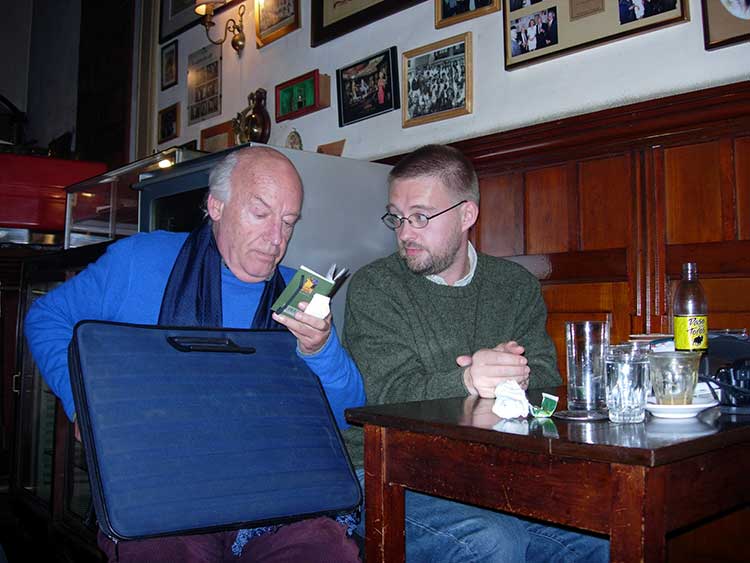
BM: You worked long years in Latin America. Can you tell us about the
work you did?
AV: I did quite a lot there, basically in all Spanish speaking countries, plus Brazil and Caribbean. Among other issues, I covered wars in Peru and Colombia, but especially great revolutionary struggles in Venezuela, Bolivia and Ecuador. I always go to Cuba, periodically, as it is my intellectual and emotional home. I wrote a lot about Brazil under Lula and Dilma, crisscrossing entire huge country. I covered “Archives of Horror” left by Strossner’s dictatorship in Paraguay. I worked with great Uruguayan writer Eduardo Galeano, author of “Open Veins of Latin America”, and in Chile, exposing German Nazi colony “Colonia Dignidad”. I wrote about horrific gangs in Guatemala, El Salvador and Honduras, and I wrote about aftermath of the US attack against Panama, particularly in the city of Colon. And I spend long time in Mexico… My last visit was in September, 2018, after AMLO won elections and Mexicans had chosen their first left-wing government in decades. For three weeks I filmed all over the country, from Tijuana to Merida, Yucatan.
Accumulatively, I spent around 5 years in Latin America.

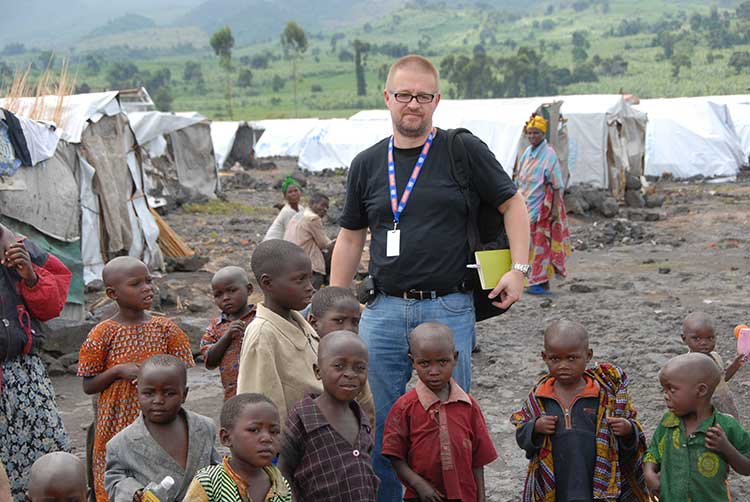
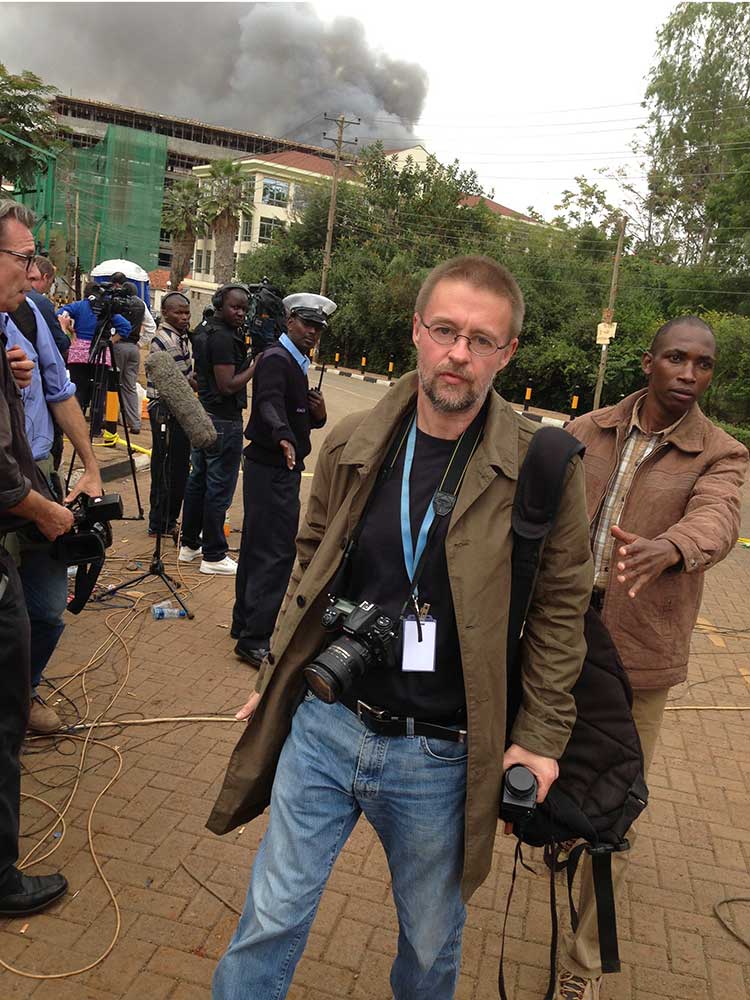
BM: You also worked hard in Africa. Can you tell us about the work you did?
AV: That is the most scarred continent on Earth.
Entire world suffered from the Western imperialism and plunder, but Africa is ‘unique’, because nowhere else in a modern history, brutality of Westerners reached such climax. Well, with the exception of Southeast Asia, perhaps.
I was filming for a Latin America television channel Telesur in the toughest slums in Kenya and Uganda. I produced documentary film about monstrous Dadaab camp, constructed for mainly Somali refugees in the middle of a dessert. And I produced and directed my big, 90-minutes documentary “Rwanda Gambit”, about how the West created absolutely false narrative about Rwanda genocide, and how it keeps silent about one of the most monstrous genocides of all times – that in the Democratic Republic of Congo (DRC), where Rwanda and Uganda, on behalf of the West, have been totally stripping off this mineral rich nation. The DRC has everything – from coltan to uranium, from gold to diamonds. Some 9 million Congolese people already died, since the invasion of Rwanda.
BM: I think you have a love affair with Asia. Living long years in Asia and working for Asia, especially on Indonesia. How did this come about?
AV: Asia is my home. I am Asian culturally, and some of my blood is from here.
I love China, but I also feel very comfortable in Japan and in other countries.
Indonesia is definitely not one of them. I do not live there, I never could; I’d rather die. I am so horrified by it, that I write about it often, and make films. I do it as a warning to the world. I am in Indonesia for totally opposite reasons than ‘love’: after 1965, this 4th most populous country on earth, was turned into one huge laboratory, by the West. Indonesia is not a country, it is a ‘concept’.
Before 1965, under left-wing, anti-imperialist President Sukarno, Indonesia was a progressive country, a cradle of Non-Aligned Movement. All the natural resources were nationalized.
The West overthrew Sukarno in the bloodiest coup of the 20th century. Between 1-3 million people were butchered, and rivers were clogged with corpses: members of the Communist Party (PKI), intellectuals, teachers, unionists.
I call it ‘intellectual Hiroshima’. The West suggested that all theatres and film studios get shut down, that Chinese and Russian languages are banned, together with the Communist ideology. Almost all writers and painters were imprisoned in Buru concentration camp.
Mass rapes took place all over the archipelago.
Thinking people were either murdered or forever silenced. Instead, cheap pop, Hollywood films and junk food were injected and promoted. In many ways, Indonesian culture ceased to exist, and its diversity was killed.
Indonesia committed, with great help from the West, three genocides in just over half of century: genocide of 1965, then in East Timor, and now an on-going genocide in West Papua.
Nation became extremely religious, oppressive and dogmatic. In the same time, this nation of well over 300 million (official statistics lie, putting the number of people at somewhere around 250 million) counts with no great writers, filmmakers, thinkers or scientists.
Everybody there thinks the same – the way ‘they suppose to think’: they love capitalism, hate Communists, they see destruction of their own natural resources as ‘progress’, they all listen to the same outdated Western pop music, watching the lowest Hollywood productions as well as tacky local horror films, and have the lowest number of books read per capita.
I try to explain, to analyze what happened there. I am simultaneously filming two big documentaries: one on the total destruction of the nature in the third biggest islands on earth – Borneo (known in Indonesia as Kalimantan) – and about the collapse of Jakarta, which is now the most polluted and perhaps one of the most ‘unlivable’ major cities on earth. Of course, I do it without any funding, as in the West and in Southeast Asia, Indonesia is ‘untouchable’. It does precisely what the West wants it to do: it sacrifices hundreds of millions of its people, as well as its nature, so the Western population can prosper. Therefore, it is almost never criticized.
So that’s about Indonesia.
I love Asia, overall, and it is my home; particularly north Asia. China, Japan, Korea(s) and Russian ‘Far East’.
Southeast Asia is totally different story. It is mightily ‘dark story’ which I keep documenting. It suffered monstrously in the past 60 years: Vietnam, Laos, Cambodia, East Timor, West Papua, Indonesia, even Thailand. It has been suffering precisely because of the Western imperialism. But people were conditioned not to see, not to understand what was done to them. Therefore, I work there, writing books and making films. Somebody has to…
BM: You are also a war correspondent. You must have had many memorable
events as a war correspondent. Anything particular you would like to
share with us?
AV: Yes. But war is everywhere, not just in those few places where it is officially recognized.
Of course, I work in Afghanistan, Syria, Iraq.
But I also work in Kashmir, or in the toughest slums in Africa, in gang lands of Central America, or in Gaza. These are war zones, too. War is where justice, including social justice, collapsed; was destroyed.
I fully agree with what Hemingway once wrote: “There are two types of writers: those who went to war, and those who are envious of them.”
Since war exists almost everywhere, a writer who is not touching it, is a liar.
War is reality. It is terrible, but when it is fought for justice and freedom, it is much better than some fake peace which is created by the Western colonialists. In this type of ‘peace’, all health and life-expectancy indicators of a war zone are present. Rape, injuries… all like in a war zone.
The Western propagandists created very dangerous ‘cult of peace’. To the West, peace is when the country fully sacrifices its natural resources and its people, for the profits of Western corporations and citizens, but the population is submissive, resigned.
They often and very correctly say in Latin America: no justice, no peace!
BM: You worked with Noam Chomsky on a book and a documentary. Can you
tell something about this legendary man? Some secret about Chomsky the
person?
AV: Noam loves roses. And a good wine. And he is, in essence, a very kind man, with great sense of humor.
It is pity that we lately disagree: on Russia, Syria and China, for instance.
But I respect most of his work, and I have to say that he did a lot, really a lot, for our humanity and for this planet.
BM: Noam Chomsky said about your book Oceania, it evoked “the reality
of the contemporary world. He has also not failed to trace the painful –
and particularly for the West, shameful realities to their historical
roots”. Any comments?
AV: Noam kindly endorsed several of my book, and even wrote Prefaces.
When it comes to Noam’s own writing related to what you call ‘shameful realities to their historical roots’, he is particularly powerful when describing the conquest of the “New World”, especially what is now called Latin America, but also the United States and Canada. I believe that his writing on these subject opened eyes of millions of people in all parts of the world.
BM: You write a lot of books on history, cotemporary politics,philosophy, fiction etc. Which is your most well received book?
AV: Critically most acclaimed book is my revolutionary novel Point of No Return. It even got super positive reviews from the most feared critics of Le Monde, Le Figaro and Paris Match.
But also, great success has been my 840-page Exposing Lies of the Empire – a book which compiles my investigative work from all continents, where imperialism is robbing, destroying and manipulating people. It is written in totally new, experimental but very well received by readers style: between novel and political fiction, between philosophy and journalism.
Of course, my book with Noam Chomsky On Western Terrorism, has been doing very well, and translated to some 35 languages (I actually lost count).
BM: You are also a documentary film maker. How do you switch from being
an author and as a film maker so easily?
AV: I actually don’t. It is all one huge struggle against Western imperialism, and for the bright days of the global Communism, no?
My work is like one tremendous mosaic, and as one big battle. I use different weapons, as I use various ways to express myself. It can be through novels, investigative journalism, philosophy, through non-fiction books, films, photographs, but also interviews that I constantly give, or through speaking in public, or at the major universities.
BM: You have traveled in 160 countries around the world. Which country
will you prefer to reside post retirement? I of course know that you are the
kind of fighter who won’t even think of retirement.
AV: You are correct: I will never retire – that would be my end.
My story is my life; and my journey is my story.
Revolution is called ‘the process’, in many countries of Latin America. It is one continuous journey: it can never end. If one is tired of this journey, he or she is tired of this world, and of life itself.
About where to live, if I could choose? You would be surprised, as it would have nothing to do with my revolutionary struggle:
Well, not necessarily, because one of the countries would be my beloved Cuba.
Another is Japan. But I do live there, for many, many years. Or more precisely, it is one of the countries where I have been living, one of my ‘bases’ until now. Of course, Japan has absolutely appalling foreign policy, but I admire its culture, its nature, poetry, literature, cinema, food. I travel to all of its corners, I feel safe, and I write well when there.

And Chile. I have lived there, on different occasions, some 4 years in total. And again – Chile has stunning nature, deep culture, tremendous poetry, literature, excellent food and wine.
BM: As you have traveled all around the world, which country do you
think is doing the best for its citizens?
AV: There are actually two questions hiding inside your question:
First: Which country is doing the best for its citizens, at the expense of plundered and colonized countries? Answer to this would be: definitely almost entire Europe
Second: Which country is doing the best for its citizens without plundering the world? The answer is: Bolivia, Cuba, China, Russia, Iran, North Korea (to the extend possible), Venezuela (to the extend possible under the terror implanted from abroad.)
BM: What is your insight to break the strangle hold of imperialism?
AV: One cannot negotiate with fascism and imperialism.
Oppressed, plundered countries, have to unite and fight.
The first round of struggle was already won, in the past. For instance, heroic Vietnamese nation defeated both the French colonialists, and the US imperialists, militarily.
But then, the Western imperialists regrouped. Emboldened first by successfully dividing China and Soviet Union, and then by ruing Soviet Union under that nitwit Gorbachev and criminal alcoholic Yeltsin, they grabbed again what they lost, shouting “Peace, Peace!”, meaning “do not dare to fight us, just accept and submit!”
Imperialists can be defeated. It was clearly demonstrated in Syria, and now both China and Russia are standing firm, confronting Western threats, provocations, sanctions and intimidation.
One should never show the weakness, when faced by Western terror.
Look at the planet; look what happened to the countries that surrendered, knelt: look at that horror in Indonesia, in East Africa, in the Middle East, Southeast Asia. Look at India after it began to worship market fundamentalism. Is this the world that we want? If not, all anti-imperialist forces should unite and fight.
And we should never expect that the Western public joins us. Western public is spoiled by privileges, and it does not have any left wing, anymore, only self-promoting, weeping discussion clubs. Countries truly fighting against Western imperialism have almost no allies in the West.
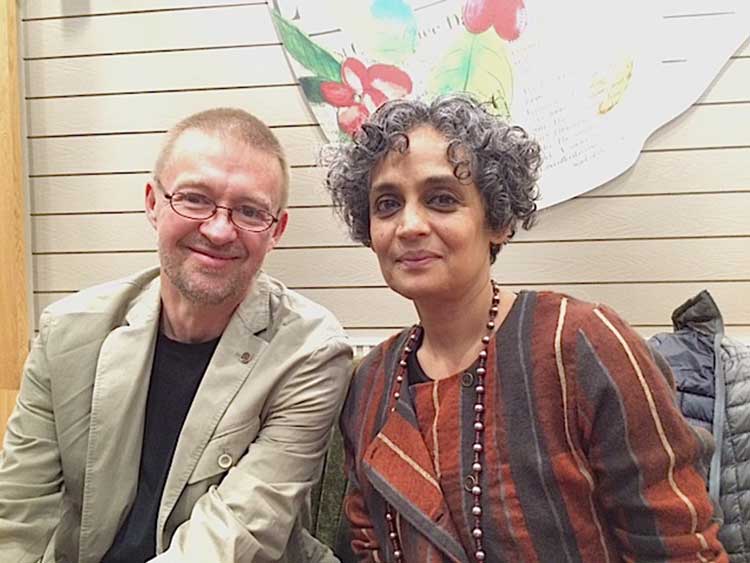
BM: What is your insight about the rise of autocratic leaders like Trump n USA, Modi in India, Bolsonaro in Brazil? Do you think there is a pattern? Some underlying current?
AV: Yes. In confused nations, where Western masters, right-wing mass media and education systems successfully manufactured obedient and self-centered, spineless band of so-called ‘elites’, what can be expected? They smeared the left, put left-wing parties and movements under the microscope, and brainwasher or at least confused the voters
Believe it or not, great majority of people even in the countries that were governed by left-wing governments, like Brazil or Ecuador, had almost no access to left-wing media. Horrible propaganda outlets like CNN in Spanish or FOX in Spanish, are ‘informing’ the citizens. In Brazil, the situation was very similar, or worse.
For years, I was warning about this. The left has to ‘invest’ into its media, education, even counter-propaganda outlets.
I talked with Chomsky a lot about this. He actually understands very well what is going on. In our book, I told my story, about how brainwashed I was, as a child, by pro-Western, pro-imperialist radio and television stations. And of course, not only me: everyone is in danger, in Syria and Iran, in China and Russia, all over Latin America.
Therefore, we have to unite, we have to double our efforts and do all we can to tell our side of the story.
And we have to intertwine our efforts. Like this interview: I love it. My Indian brother and I, a Soviet internationalist educated on Cuban thoughts, exchanging ideas! Publicly and frankly.
BM: Climate Change and Resource Crisis are driving the world towards collapse. Do you think that the world can still be saved? What’re your suggestions?
AV: It can be saved, but again, only if imperialism and neo-colonialism are destroyed.
The best example is Indonesia and the film that I am making, about destruction of Borneo Island. In the West, people in order to feel good, turn off every light when they leave the room, they turn off water. But their companies are plundering what is left of the native tropical forest, they are flattening entire mountains.
Because of Western over-production and over-consumption, entire island-nations in Oceania are becoming uninhabitable.
What is needed is to re-think entire ‘world order’. Do we really need economic growth? Or should it all be about re-distribution.
Comes China! Despite what people are told to believe, (again, by the Western propaganda outlets), China is at the forefront of struggle for so-called “Ecological Civilization”. I know a lot about it, because I am working with a great philosopher John Cobb Jr., who has enormous influence on the Chinese leadership, including their landmark decision to engrave ecological civilization into the constitution. We are currently writing a book on the subject, together. China is intentionally slowing down its economic growth, it is returning back to its traditional wisdom, and it has also managed to reverse migration from the countryside to the cities, by greatly improving the rural life. The book will be available in less than one month.
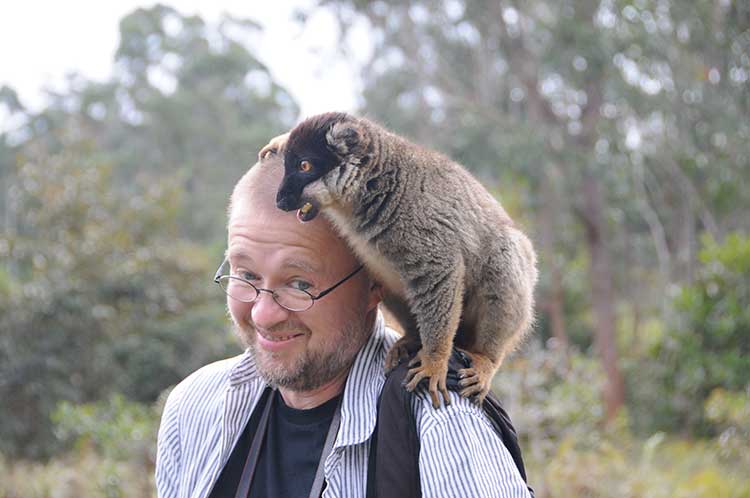
BM: Are you happy?
AV: Yes. Insanely. Even when I am fxxxxd and hardly able to move.
I am a fighter. I am an internationalist, a Communist. We are winning. Slowly, very slowly, but winning.
The journey is tough, it is dangerous. But I don’t want any other journey, or any other fate.
My life is not perfect, but I would never trade. I do my best. And I love it the way it is.
And I love stories. Without good stories, there is no life. Along the journey, the road, there are millions of stories. They define and illustrate our human kind. Based on these stories, there is great revolutionary struggle, igniting our planet once again.
Imperialists want us to forget about the stories. They want us to live on pre-fabricated junk stories of Hollywood and Disney. It is our duty to tell the real stories, because they are much more beautiful than computer-generated ones, and they are true.
That’s why I create, write, and film. No stories, no revolution!
And more I hear and see and create, the happier I get.
*
Andre Vltchek is a philosopher, novelist, filmmaker and investigative journalist. He has covered wars and conflicts in dozens of countries. Three of his latest books are Revolutionary Optimism, Western Nihilism, a revolutionary novel “Aurora” and a bestselling work of political non-fiction: “Exposing Lies Of The Empire”. View his other books here. Watch Rwanda Gambit, his groundbreaking documentary about Rwanda and DRCongo and his film/dialogue with Noam Chomsky “On Western Terrorism”. Vltchek presently resides in East Asia and the Middle East, and continues to work around the world. He can be reached through his website and his Twitter.
First published by Countercurrents.org
The 21st Century
